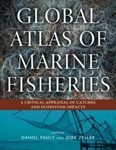![Interrelationships Between Corals and Fisheries Interrelationships Between Corals and Fisheries]()
Click to have a closer look
About this book
Contents
Customer reviews
Biography
Related titles
About this book
Interrelationships Between Corals and Fisheries is derived from a workshop held by the Gulf of Mexico Fishery Management Council in Tampa, Florida in May 2013, where world authorities came together to discuss the current problems in managing tropical fisheries and offered suggestions for future directions for both researchers and environmental resource managers. Interrelationships Between Corals and Fisheries addresses current and emerging threats as well as challenges and opportunities for managing corals and associated fisheries. It provides an information baseline toward a better understanding of how corals and the consequences of coral condition influence fish populations, especially as they relate to management of those populations.
Interrelationships Between Corals and Fisheries contains content from presentations modified as a result of interactions and discussions with colleagues and peer reviews by global experts in corals and fisheries. Many chapters include additional materials not presented in the workshop. There are also papers that were not presented at the workshop but contribute to the central theme of Interrelationships Between Corals and Fisheries. Topics covered include:
- Global decline in coral reefs and impacts on fishery yields
- Distribution and diversity in the Gulf of Mexico
- Implementation of Coral Habitat Areas of Particular Concern (CHAPCs)
- Deepwater coral/sponge habitats
- Coral populations on offshore platforms
- Mangrove connectivity for sustaining coral reef fisheries
- Restoring deepwater coral ecosystems and fisheries after the Deepwater Horizon oil spill
- Predictive mapping of coral reef fish
Covering a range of subject matter, most of the chapters offer suggestions for future research on the interrelationships between corals and fisheries. In addition, the final chapter presents a summary on these interrelationships and discusses managing them for the future.
Contents
Introduction: The Need to Discern the Relationships between Corals and Fisheries
Stephen A. Bortone
Addressing the Global Decline in Coral Reefs and Forthcoming Impacts on Fishery Yields
Peter F. Sale and Mark A. Hixon
Distribution and Diversity of Coral Habitat, Fishes, and Associated Fisheries in Us Waters of the Gulf of Mexico
Carrie M. Simmons, Angela B. Collins, and Rob Ruzicka
Implementation of Coral Habitat Areas of Particular Concern (CHAPCs): South Atlantic Fishery Management Council Process
Anna Martin
Characterization and Interrelationships of Deepwater Coral/Sponge Habitats and Fish Communities on Pourtales Terrace, Florida
John K. Reed, Stacey Harter, Stephanie Farrington, and Andrew David
Factors Affecting Coral Reef Fisheries in the Eastern Gulf of Mexico
Walter C. Jaap, Steve W. Ross, Sandra Brooke, and William S. Arnold
Coral Community Development on Offshore Platforms in the Gulf of Mexico: What We Now Know
Paul W. Sammarco
A Strategic Approach to Address Fisheries Impacts to Deep-Sea Coral Ecosystems
Thomas F. Hourigan
Restoring Deep-water Coral Ecosystems and Fisheries after the Deepwater Horizon Oil Spill
Andrew N. Shepard
Mangrove Connectivity Helps Sustain Coral Reef Fisheries under Global Climate Change
Janet A. Ley
Augmented Catch-MSY Approach to Fishery Management in Coral-associated Fisheries
Marlowe Sabater and Pierre Kleiber
Predictive Mapping of Coral Reef Fish Species and Communities
Simon J. Pittman and Anders Knudby
Progressing from Data to Information: Incorporating GIS into Coral and Fisheries Management
Mark Mueller, John Froeschke, and David Naar
Connectivity in the Tropical Coastal Seascape: Implications
John C. Ogden, Ivan Nagelkerken, and Carole C. Mc Ivor
Sustaining the Interrelationships between Corals and Fisheries: Managing for the Future
Stephen A. Bortone
Customer Reviews
Biography
Stephen A. Bortone, PhD, recently retired as executive director of the Gulf of Mexico Fishery Management Council and now serves as a principal in an environmental consulting firm (Osprey Aquatic Sciences, Inc.) specializing in fisheries and other aquatic sciences. For the past 45 years, he has conducted research on fisheries and the life history of aquatic organisms, especially fishes, chiefly in the southeastern United States and the Gulf of Mexico. He has published over 160 scientific articles on broad aspects of the aquatic sciences, but mostly on fisheries. In addition, he has edited four books on the aquatic sciences.

























![Les îles Saint-Paul et Amsterdam (Océan Indien Sud): Environnement Marin et Pêcheries [Saint-Paul and Amsterdam Islands (South Indian Ocean): Marine Environment and Fisheries]](http://mediacdn.nhbs.com/jackets/jackets_resizer_medium/26/260268.jpg?height=150&width=107)

















